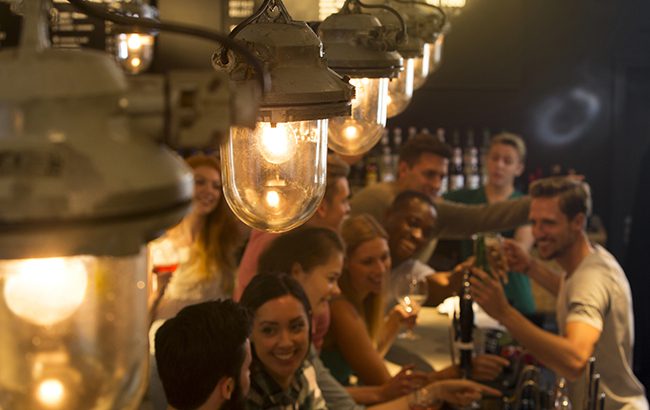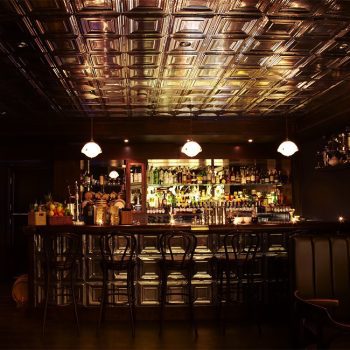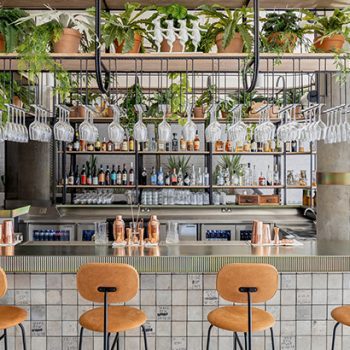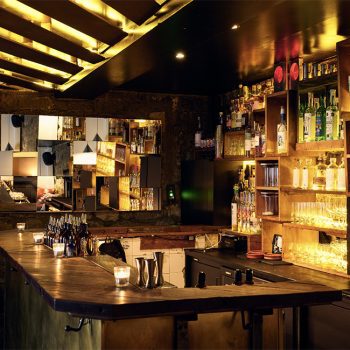How bars can go the distance
No one wants their bar to be a flash in the pan, but the fact of the matter is that most on-trade venues don’t make it in the long term.

No one opens a bar thinking it’ll fizzle out within a year – but the odds aren’t kind. Since March 2020, the UK has lost nearly 28,000 licensed venues, an average of 119 closures a week. Even with around 54 new openings each week, the net loss is stark.
There are, of course, exceptions – bars that have truly stood the test of time. Take, for instance, London’s Nightjar, which this year celebrates its 15th anniversary. Paris’s Candelaria is just behind at 14 years old, and Hacha in Dalston has now been running for six. All three are independently owned – and all have something in common: a strong sense of purpose and an ability to adapt.
At this year’s BCB London, the founders of these bars joined The Cocktail Lovers’ Sandrae Lawrence for a panel discussion on what it really takes to achieve longevity.
Business basics
“When you open a bar, you’re not just serving drinks,” said Nightjar’s Roisin Stimpson. “You’re running a business – with responsibilities to HMRC, your employees, employment law, and culture.”

Stimpson described these as the foundations of a business. “People don’t get into bars to do that stuff, but it is really essential and takes up most of your time. Occasionally, you get to think about beautiful drinks, but most of the time, you’re thinking about how to fix the flood water that’s just come in from upstairs.”
She advised anyone thinking of opening a bar to get some training in these “unsexy” areas, such as bookkeeping, accounting, budgeting and health and safety.
For Carina Soto, who is behind Candelaria and Le Mary Celeste in Paris, as well as Equal Parts in Hackney, the key to longevity is a strong partnership – and the paperwork to back it up. “When we go into business, at the beginning it’s an adventure. Everybody is in love and it’s great, but you don’t know how things are going to go,” she said. She advised investing in a formal partner agreement early on. “It’s expensive, but crucial. A bad partnership can ruin your business.”
‘Not a good time for cocktail bars’
For Hacha co-founder Emma Murphy, the key is clarity of purpose. “What are you trying to showcase – the artistry of classic cocktails, a specific spirits sector? Once you know what that purpose is, then you have to be very clear in communicating that to your customer base.”

Consistency is key, she said. “You don’t want to look like you’re chasing trends. Everything should layer on top of a strong foundation of who you are.”
Stimpson noted that Nightjar’s demographic has shifted significantly in the past few years — post-Covid, their target audience is now 25- to 35-year-olds. This means the team has had to shake up its marketing: “They consume media differently and want different things from brands. They want to know that brands are authentic and ethical.”
Plus, the demographic of the local area has also changed. The area once known as the Silicon Roundabout is no longer full of tech workers. “There was a lot of money floating about, and it’s less like that now.”
“To be honest with you, it’s not a good time for cocktail bars,” she added. “In hospitality, it’s probably still a decent time for food-led places with drinks or some outrageously successful cocktail bars. But we have had to change things, and we’ve been very lucky to have the support of brands to do that.”
Building a team and a community
A good bar team is often a key to a venue’s success, but building one takes more than hiring the most impressive bartenders money can buy.
“Everybody needs to have the same notion of hospitality,” said Soto. While skills vary and concepts evolve, basic warmth and care are non-negotiable. “If you keep your bar true to itself, and your bartenders deliver basic hospitality, any trend you want to try will work.”
For Soto, service can be more important than the quality of drinks, with consumers more likely to return to a bar with great hospitality. “Awards, if they come, are fantastic. But what I want is regulars. I want my neighbourhood to support me. My places are businesses, and I have to pay my bills and those families that live on them.”
Murphy agreed, stressing the value of making guests feel like they belong: “If you make people feel welcome, make them feel safe and show them a nice time, they’ll keep returning – which is the bread and butter of your business. They’ll also tell their friends about you.”
For Stimpson, people development isn’t rocket science. “I think it’s just about being decent people. I think Edmund [Weil, co-founder] and I are decent people, and we select people who we think share our vision.” With a solid team in place, she believes it’s important not to be micromanagers or taskmasters, but to allow people to be creative. “Our identity is as much about the people who have been through the bar working with us. Every person who comes on changes things.”

“Our two managers have been with me for 12 years,” added Soto. “The reason they’ve stuck around is because we have allowed them to make mistakes. We have made room for that, and they have learned from it.”
Navigating the hard times
“If someone had told us what a rollercoaster this was going to be, we might not have done it,” laughed Murphy. Hacha launched a year before the pandemic, so it has faced adversity from the beginning. “We had a really good eight or nine months, then everything completely changed,” she said. “There wasn’t really a whole lot we were able to do to prepare for that.”
However, the one tip she would give is “you have to really love what you do”. “When the shit hits the fan, you have to make sure you’re passionate enough to not give up.”
Her second tip is to make sure you’re doing it with the right person. ”There have been many points where we’ve had to make some quite hard decisions, and Deano [Moncrieffe, co-founder] and I have really aligned on those, luckily.”
One of those hard decisions was closing Hacha’s Brixton site. “It was sad, but I was delighted to close Brixton,” she revealed. “We put our heart, soul, resources, everything into it, but it was so hard to run that venue commercially,” she said, citing the difficulties of being in a “really draughty old building”, with vermin, breakages and issues with the site being listed.
The team relocated the bar to Bermondsey, “which feels like a breath of fresh air”. She added: “Sometimes you have to cut off the arm to move forward. You shouldn’t necessarily always look at a negative as a negative.”
One key lesson
To close the session, Lawrence asked each of the panellists to give a top tip for longevity.
“Open a bar you love,” said Stimpson, “because you’re going to be managing it for, hopefully, years. There will be ups and downs, so you have to go into the bar and think: actually, this is pretty awesome.”
Meanwhile, Soto concluded: “Delegate and allow people to make mistakes. Have diversity in your teams. And keep it simple.”
Murphy echoed Stimpson’s point about having passion for your bar, but added that you should “never underestimate the commercial part of your business. Ultimately, the biggest stress factor is money. You can have all the ideas and you can have all the passion, but if you’re losing money, it’s really stressful.”
Related news
Scottish on-trade nets 40% business rates relief
Are Indian investors waking up to the power of the on-trade?
